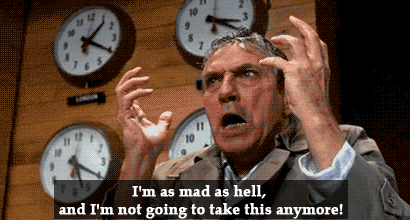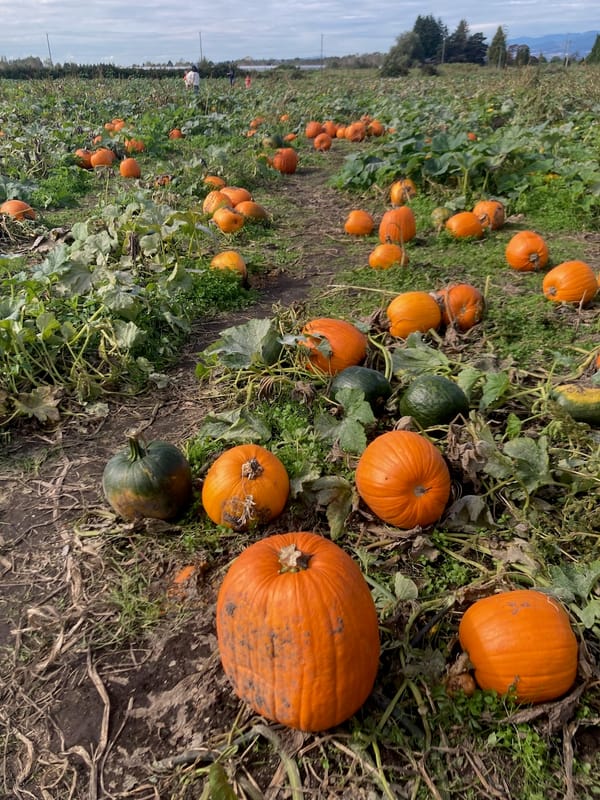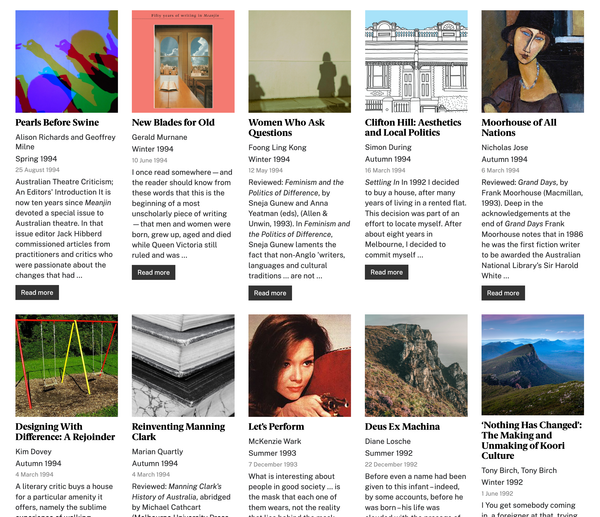So long, Substack
Gotta bounce, there's too much Elon in the air

This is the last newsletter I will send through the Substack app, friends. Once it’s out in the ether I will get my act together and export my list to Ghost. There’s a new page set up over there, which currently looks like a dog’s breakfast. Hoping to get ‘thoughts, stories and ideas’ off the banner shortly…
Why am I leaving? Folks have been talking about the Nazi problem on Substack since early 2024, and things have only gotten worse since then. This platform is making a profit off white supremacism and I don’t wanna be a part of it. I should have left long ago, and Trump’s litany of lawless, cruel executive orders have jolted me out of passivity. So the next Infra Dig missive I send will come to you via Ghost. If you’re a follower to this newsletter rather than a subscriber and you want to keep reading, you’ll need to subscribe over there as I don’t have your deets.
Laziness, largely, kept me from making the move, to be frank. Turns out I overestimated how difficult it would be to scoot to another platform. In fact, it’s been a piece of cake and I regret not doing so earlier. I despise the sham free speech/libertarian rhetoric at the heart of Substack’s business model and I’m extremely pleased to be clear of it. Also, what a relief to have no reason whatsover to go anywhere near Substack Notes, surely the most vacuous social platform out there. I tried hard to pay attention to some of the conversations about literary culture underway on Notes, in the interest of staying in touch, but I had to check out in order to ward off a proliferation of contemptuous feelings.
All said, this was a low-stakes decision for me: I don’t have a huge list, and I don’t generate any income from these intermittent missives. The calculations around staying on Substack or leaving are, I appreciate, different for those who rely on their newsletters for a good chunk of their income and who have invested significant resources into building their audiences here. Substack also is an extraordinarily straightforward platform to use, in terms of both content and audience management, and that’s not to be discounted for self-publishers. I’ve worked in the backend of many different publishing and content management systems over the years and Substack has easily the simplest and most intuitive back-end interface. Even though there’s not a lot of leeway in terms of design, it’s hard to fuck things up and easy to edit and fiddle around with content. The analytics offered to non-paying users are detailed and accessible. So I understand the appeal, and will keep reading the millions of Substacks I’ve signed myself up for in the name of research (probably not all of them, tbh), but it’s well past time for me to blow this pop stand.
Anyone spending time on literary Substack or bookish social media must be aware that the publisher at Simon and Schuster recently made a stunning decision, and that was to no longer require authors to solicit blurbs for their books. There has been a fantastic torrent of discourse generated by this decision, much of it a rehash of long-standing conversations about the hype cycle and book publicity.
I wrote about the blurb malaise in 2023 in a long piece for the SRB, which you can read here. That piece started off as a review of the very entertaining memoir of a publishing copywriter who specialised in jacket copy, and then veered off to a polemic against the blurbification of literary culture. I argued then that blurb rhetoric – gush, hype, enthusiasm, puff, rave and related modalities – had effectively overwhelmed most public discourse about books. The blurb expresses a relationship of proximity to existing networks of prestige, and it does so in a language that forfends nuance. It is a kind of sales pitch – for the book, the author, and the blurber. Everyone wins, but also, no one wins, because it does without saying that a blurb that lacks enthusiasm is a blurb that gets buried.
Two years later public book culture is even more blurbified, such that the S&S decision seems to me neither here nor there. Who needs blurbs when authors must conscript their friends to rave about them on social media, to do guest posts on their newsletters, to introduce them at writers’ festivals? The blurb is everywhere, the logrolling never stops, the puff could power steamships, etc etc. I think it might be possible to put together an argument that Trump’s presidency represents the blurbification of politics. I will leave that task to more energetic hands.
I was very happy to have the occasion to write about Brenda Niall’s biography of Joan Lindsay for Guardian Australia, a biography that I might otherwise have skipped over, on the rather silly grounds that I knew nothing about Joan Lindsay. It’s a very moving book about a creative vocation delayed - and also a complex account of mid-century Australian cultural life, in that it captures the energy of post-Federation Australia building the infrastructure of public cultural life, and also shows in a very pointed and melancholy way, how that infrastructure was built to exclude women, and had no way of envisaging Australians from non-European backgrounds as artists, let alone Indigenous people.
Crikey also asked me to write about the acquisition of Text Publishing by Penguin Random House in January. This was presented by all involved as an extremely fortuitous and well-balanced marriage of two houses, which of course it is not. Most of what I have to say about this acquisition is in the Crikey piece, but I want to stress the labour rights angle anew, which is often neglected in lofty statements about authors and readers and capital-L literature. Of course we should be worried about the ever diminishing opportunities available for writers to get paid for their work, and also about avid readers of Australian literature having fewer books to choose from – but conglomeration is a particularly shit deal for people employed by publishers, the editors, publicists, proofreaders, sales folks, production editors, accountants, rights managers and other bods involved in bringing books into print. Those are the workers directly affected by processes euphemised as change management and rationalisation. We do need to talk about artists rights in Australia and recognise the value of creative labour, but I’m strongly of the view that the work of artsworkers needs to be more visible in these conversations.
Speaking of avid readers, this Australia Reads report, Understanding Australian Readers, is terrific and I’m looking forward to going to the launch of it in a few hours, and thinking more about the way it characterises reading and readers.
See you over on Ghost, comrades.


